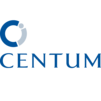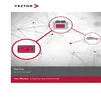
The DCS & Panel Designing training course is designed for engineers and technicians who wish to gain expertise in the design and operation of Distributed Control Systems and electrical panels. Participants will learn about the architecture of DCS, integration techniques, panel layout, wiring, and troubleshooting. The course includes hands-on sessions for practical experience with real equipment, simulations, and project work to ensure a comprehensive understanding of system design and operational challenges in industrial environments.
DCS and Panel Designing Interview Questions - For Intermediate
1. What is the difference between a DCS and SCADA (Supervisory Control and Data Acquisition) systems?
While DCS systems are ideal for complex processes across various operational units within a site, SCADA systems are designed to monitor and control equipment spread over large distances, focusing more on data acquisition and remote control.
2. Explain the concept of "distributed" in DCS.
The term "distributed" in DCS refers to the distribution of control functions across multiple subsystems or nodes within a network, rather than centralizing control in a single location. This approach enhances system reliability and scalability.
3. How do you ensure system security in a DCS environment?
System security can be ensured by implementing network segmentation, using firewalls and VPNs for data protection, applying regular software updates and patches, and enforcing strict access controls and authentication measures.
4. What role do fieldbus systems play in a DCS?
Fieldbus systems replace traditional point-to-point wiring between control systems and field devices with a digital communication network, reducing wiring costs, improving data availability, and enhancing diagnostic capabilities.
5. Can you describe the fail-safe mechanisms in a DCS?
Fail-safe mechanisms in a DCS typically include hardware and software redundancies, such as dual redundant controllers, power supplies, and networks that ensure the system continues to operate safely even in the event of a component failure.
6. What is asset management in the context of DCS?
Asset management involves the systematic tracking and management of the equipment and devices connected to the DCS, aimed at optimizing their use, enhancing reliability, and reducing operational costs through effective maintenance and upgrades.
7. How do you perform a system backup in a DCS?
System backups in a DCS involve creating copies of all critical data, including system configurations, programs, and process data, which are stored in secure locations to restore the system in case of data loss or system failure.
8. What is the impact of virtualization in DCS systems?
Virtualization allows multiple virtual instances of operating systems and applications to run on a single physical machine, enhancing the flexibility, scalability, and manageability of DCS environments while reducing hardware costs.
9. How do advanced control strategies like Model Predictive Control (MPC) integrate into DCS?
MPC can be integrated into DCS to provide advanced process control capabilities. It uses mathematical models to predict future process behavior and optimize control actions, improving process stability and efficiency.
10. Describe the process of scaling up a DCS for a new production line.
Scaling up involves assessing the existing system capacity, integrating additional controllers and I/O modules as needed, updating the software to incorporate new control strategies, and ensuring seamless communication between old and new components.
11. What are the challenges of integrating legacy systems with modern DCS?
Challenges include compatibility issues, differing communication protocols, and potential disruptions during integration. Overcoming these requires careful planning, possibly using protocol converters, and phased implementation strategies.
12. How does a DCS handle process optimization?
A DCS optimizes processes by continuously monitoring and adjusting control parameters to maintain optimal operating conditions, using feedback from the process itself and predictive analytics to preemptively correct deviations.
13. What are smart sensors and how do they integrate with DCS?
Smart sensors are advanced sensors with built-in processing capabilities that can communicate detailed diagnostics and process information. They integrate with DCS by providing richer data for better control and decision-making.
14. Explain the concept of plant-wide control using DCS.
Plant-wide control involves using a DCS to monitor and control all aspects of a manufacturing facility, from incoming raw materials to final product delivery, ensuring optimal performance across all processes.
15. How do you update or upgrade a DCS system?
Updating or upgrading involves planning the scope and timing of the upgrade, testing new components in a simulation environment, implementing them in stages to minimize disruption, and training operators on new features.
16. What is the role of analytics in DCS?
Analytics in a DCS help in deriving insights from historical and real-time data to improve process efficiency, predict equipment failures, and support decision-making processes for plant management.
17. Can you explain how a DCS supports regulatory compliance?
A DCS supports regulatory compliance by providing tools and features for data recording, reporting, and process control that meet industry standards and regulations, ensuring safe and efficient plant operations.
18. What are the energy management capabilities of a DCS?
Energy management in a DCS involves monitoring and controlling energy usage across the plant to optimize consumption, reduce costs, and support sustainability initiatives.
19. Discuss the role of mobile interfaces in DCS management.
Mobile interfaces allow operators and managers to access system data, receive alerts, and perform some control functions remotely, enhancing flexibility and response times.
20. What future developments do you foresee in DCS technology?
Future developments may include more extensive integration with IoT and AI technologies, increased use of cloud services for data management, and further advances in cybersecurity measures to protect against emerging threats.
DCS and Panel Designing Interview Questions - For Advanced
1. What is the difference between a PLC and a DCS?
Answer: A PLC (Programmable Logic Controller) is designed for real-time control and automation of industrial processes in a robust, hard real-time environment. DCS, on the other hand, is optimized for large-scale, complex process control by integrating multiple PLCs, offering extensive redundancy, and facilitating large-scale coordination of plant processes.
2. How would you design a fail-safe system for a critical control panel?
Answer: A fail-safe system design would include redundancy for critical components such as power supplies and controllers, use of fault-tolerant field devices, circuit protections like fuses and breakers, and ensuring that the system defaults to a safe state in the event of component failure.
3. Explain PID control in the context of DCS.
Answer: PID (Proportional, Integral, Derivative) control in DCS involves using the PID algorithm to maintain process variables like temperature, pressure, or flow at a set point by adjusting control inputs. DCS allows for multiple PID controllers operating simultaneously, enabling fine-tuned process management across various points of a facility.
4. Describe a challenge you've faced in panel designing and how you overcame it.
Answer: A common challenge is space limitation within panels, especially when retrofitting additional components. Overcoming this involved meticulous planning of layout and components, often using 3D modeling software to optimize space and ensure adequate cooling and wiring paths before assembly.
5. What are some considerations when integrating DCS with other enterprise systems?
Answer: Key considerations include ensuring compatibility between different software systems, maintaining robust security protocols to protect against cyber threats, providing proper training for staff on new interfaces, and establishing reliable data communication paths to ensure timely and accurate data transfer.
6. How do you ensure safety and compliance in control panel design?
Answer: Ensuring safety and compliance involves adhering to industry standards such as IEC 61131-2, regularly conducting risk assessments and safety audits, incorporating protective devices, and labeling all components clearly for easy maintenance and troubleshooting.
7. What strategies would you use to reduce noise interference in signal wiring in a DCS environment?
Answer: Strategies include using shielded cables, grounding at a single point, maintaining physical separation from power cables, implementing twisted pair wiring for differential signals, and using optical isolation where high interference is present.
8. Can you explain how SCADA integrates with DCS?
Answer: SCADA (Supervisory Control and Data Acquisition) integrates with DCS to provide a higher-level view of process control by collecting data from various DCS points. SCADA focuses on monitoring and controlling across broader geographical areas, bringing together data from multiple DCS systems for centralized monitoring.
9. What are the benefits of using an integrated DCS architecture as opposed to isolated controllers?
Answer: Integrated DCS architectures offer improved coordination and consistency across process controls, easier scalability and updates, centralized data handling and analytics, and enhanced safety features through unified control strategies and redundancy.
10. How would you handle version control and updates in DCS software?
Answer: Handling version control involves maintaining detailed documentation of changes, using version control systems to track software updates, rigorously testing updates in a simulated environment before deployment, and ensuring all stakeholders are trained on new features and changes.
Course Schedule
| Dec, 2025 | Weekdays | Mon-Fri | Enquire Now |
| Weekend | Sat-Sun | Enquire Now | |
| Jan, 2026 | Weekdays | Mon-Fri | Enquire Now |
| Weekend | Sat-Sun | Enquire Now |
Related Courses
Related Articles
- How a SmartPlant P&ID User Can Streamline Engineering Workflows
- Key Benefits of Choosing SAP IBP – SAP IBP Online Training Course
- Comprehensive Guide to SAP Analytics Cloud
- Advance Your IT Career with MuleSoft Online Certification Training
- Enhance Your Skills with Apache Spark Certification Training
Related Interview
Related FAQ's
- Instructor-led Live Online Interactive Training
- Project Based Customized Learning
- Fast Track Training Program
- Self-paced learning
- In one-on-one training, you have the flexibility to choose the days, timings, and duration according to your preferences.
- We create a personalized training calendar based on your chosen schedule.
- Complete Live Online Interactive Training of the Course
- After Training Recorded Videos
- Session-wise Learning Material and notes for lifetime
- Practical & Assignments exercises
- Global Course Completion Certificate
- 24x7 after Training Support












 Join our Live Instructor-Led online classes delivered by industry experts
Join our Live Instructor-Led online classes delivered by industry experts